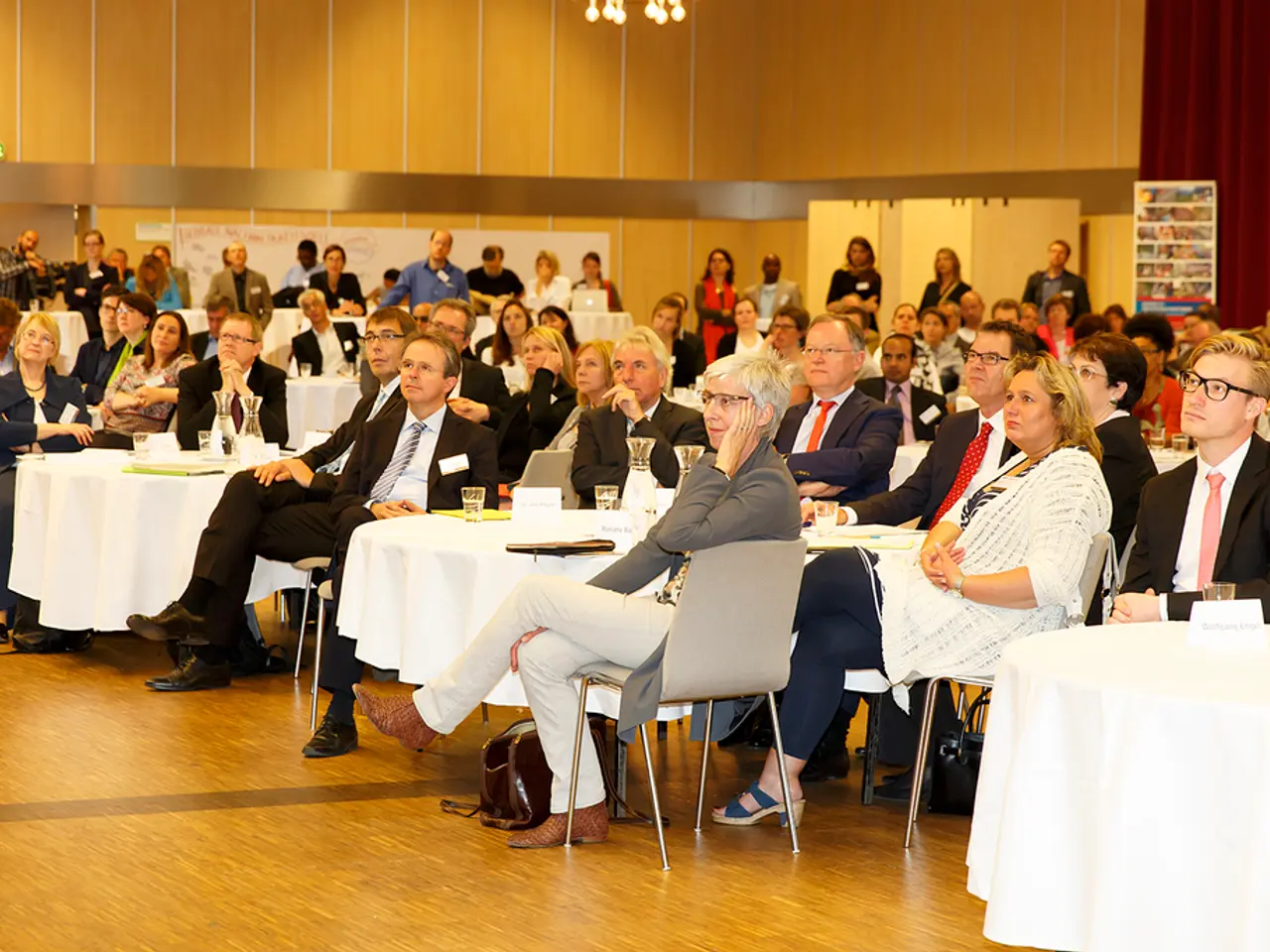Enhance Your Listening Skills
In today's hybrid work environment, effective communication has taken on a new significance. The article published in the Harvard Business Review (HBR) sheds light on seven ways to make employees feel respected, as well as the importance of empathy for leaders, especially in remote and hybrid work settings [1].
One of the key strategies for improving active listening skills in remote work is giving undivided attention during virtual meetings or calls. This involves minimizing multitasking, turning on video to better catch nonverbal cues, and focusing fully on the speaker [2][4].
Another essential strategy is using reflective listening by summarizing or restating the speaker’s points to verify your understanding and engage actively with the content [2][4]. This approach not only demonstrates empathy but also ensures that everyone is on the same page.
Leaders should also be aware of emotional intelligence (EI) to recognize and respond sensitively to teammates’ emotional states, which may be harder to detect remotely due to limited visual cues [3].
Establishing communication norms that specify when and how to communicate is another crucial step. For example, using instant messaging for quick questions and video calls for complex issues ensures that listening efforts are purposeful and aligned across the team [2].
Providing constructive feedback and inviting feedback about your listening and leadership style is also important. This continuous improvement process helps leaders strengthen their empathetic communication [3].
Practicing active listening exercises, such as focusing on conversation intent, encouraging speakers nonverbally, and asking clarifying questions, can help strengthen these skills over time [4].
Improving active listening virtually requires deliberate effort to replicate in-person attentiveness and empathy through technology and supportive communication habits. This builds trust, reduces misunderstandings, and fosters better collaboration in remote teams [5].
In addition to these strategies, it's important to pay attention to non-verbal clues received from the speaker and other listeners. Reading body language, tone of voice, and social clues is crucial for understanding the full context of a conversation [1].
Moreover, managers should value diversity, understand individuals' concerns, build trust, resolve conflicts, balance results with concerns for others, encourage open discussions, and provide honest, balanced feedback [1].
Active listening is a vital skill that is rarely taught and requires focus and concentration. By practicing these strategies, leaders can make a significant difference in their relationships with their team members and contribute to a more productive and collaborative work environment.
References:
[1] Harvard Business Review. (2021). Seven Ways to Make Employees Feel Respected. Retrieved from https://hbr.org/2021/02/seven-ways-to-make-employees-feel-respected
[2] Harvard Business Review. (2021). How to Improve Your Active Listening Skills. Retrieved from https://hbr.org/2021/02/how-to-improve-your-active-listening-skills
[3] Harvard Business Review. (2021). The Empathetic Leader. Retrieved from https://hbr.org/2021/03/the-empathetic-leader
[4] Harvard Business Review. (2021). Active Listening in a Virtual World. Retrieved from https://hbr.org/2021/04/active-listening-in-a-virtual-world
[5] Harvard Business Review. (2021). The Importance of Empathy for Leaders in Hybrid and Remote Work Settings. Retrieved from https://hbr.org/2021/05/the-importance-of-empathy-for-leaders-in-hybrid-and-remote-work-settings
- Cultivating personal growth and effective communication in remote work environments is possible through practices like active listening, empathy, and emotional intelligence.
- Adopting strategies such as giving undivided attention, using reflective listening, and establishing communication norms can foster better relationships and collaboration among remote team members.
- Continuous self-improvement in active listening skills by attending to non-verbal clues, practicing active listening exercises, and providing constructive feedback can lead to a more productive and empathetic home-and-garden, education-and-self-development, and lifestyle.




